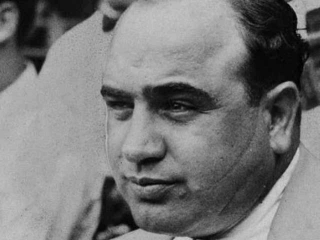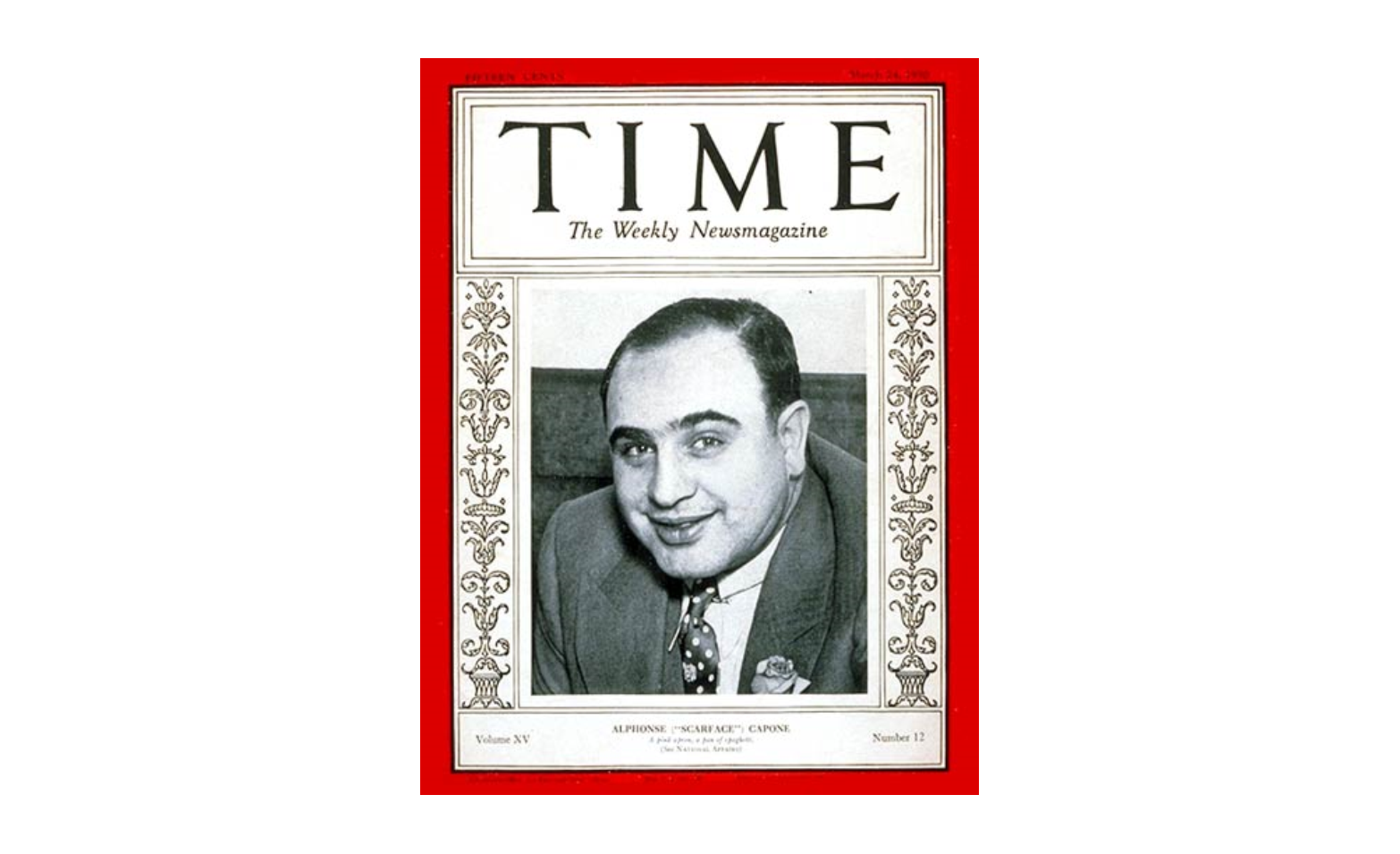



Alphonse Gabriel "Al" Capone was born in Brooklyn, New York on January 17, 1899 to Italian immigrants. His father was a barber and his mother stayed home with the children. They were a tight-knit Italian family who were trying to succeed in their new country.
Capone quit school after the sixth grade and joined a notorious street gang led by Johnny Torrio. Lucky Luciano was also a member one of the New York gangs.
In his early twenties Torrio invited Capone to move to Chicago to take advantage of a new opportunity to make money smuggling illegal alcoholic beverages into the city during Prohibition. He also engaged in a number of other criminal activities, including bribery of government figures and prostitution. Besides the illegal businesses they ran, the mob also had interests in legitimate businesses and to some extent had a favorable reputation in the public eye.
Despite his illegitimate occupation, Capone became a highly visible public figure. He made donations to charity with the money he made from his illegal activities, and was viewed by many to be a "modern-day Robin Hood".
In 1925, Capone became the leader of the mob in Chicago. He built a reputation as a ruthless leader, eliminating or repressing rival mobs in Chicago and surrounding areas. Although the exact numbers will never be known, it is believed that Capone personally murdered dozens of people and ordered the killing of hundreds of others.
The most famous hit believed to be ordered by Capone was the February 14, 1929 assassination known as the St. Valentine's Day Massacre. On that day, Capone's henchman "Machine Gun" Jack McGurn attempted to lure rival crime leader George "Bugs" Moran into a garage and kill him. The ruse was actually quite elaborate and would have been completely successful if Moran hadn't been running a few minutes late. Still, seven of Moran's top men were gunned down in that garage.
Although never convicted of any crime associated with murder, after the Saint Valentine's Day Massacre, Capone's public reputation suffered because of his supposed involvement in it.
On October 18, 1931, Capone was convicted on five of twenty-two counts of tax evasion. The judge sentenced Capone to 11 years in prison, $50,000 in fines, and court costs totaling $30,000.
His incarceration included a term at Alcatraz federal prison. In the final years of Capone's life, he suffered mental and physical deterioration due to late-stage neurosyphilis, which he had contracted in his youth. On January 25, 1947, he died from cardiac arrest after suffering a stroke.